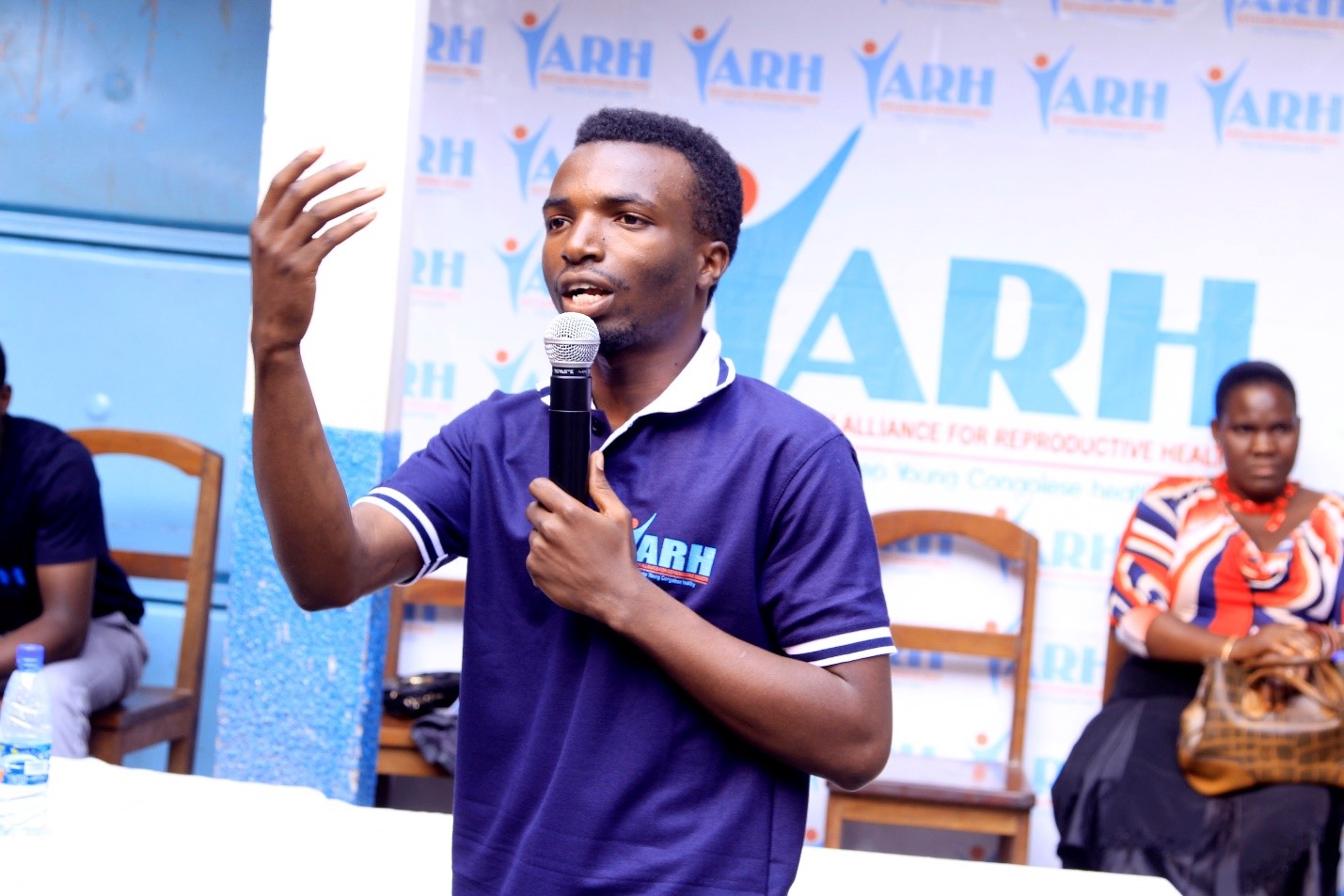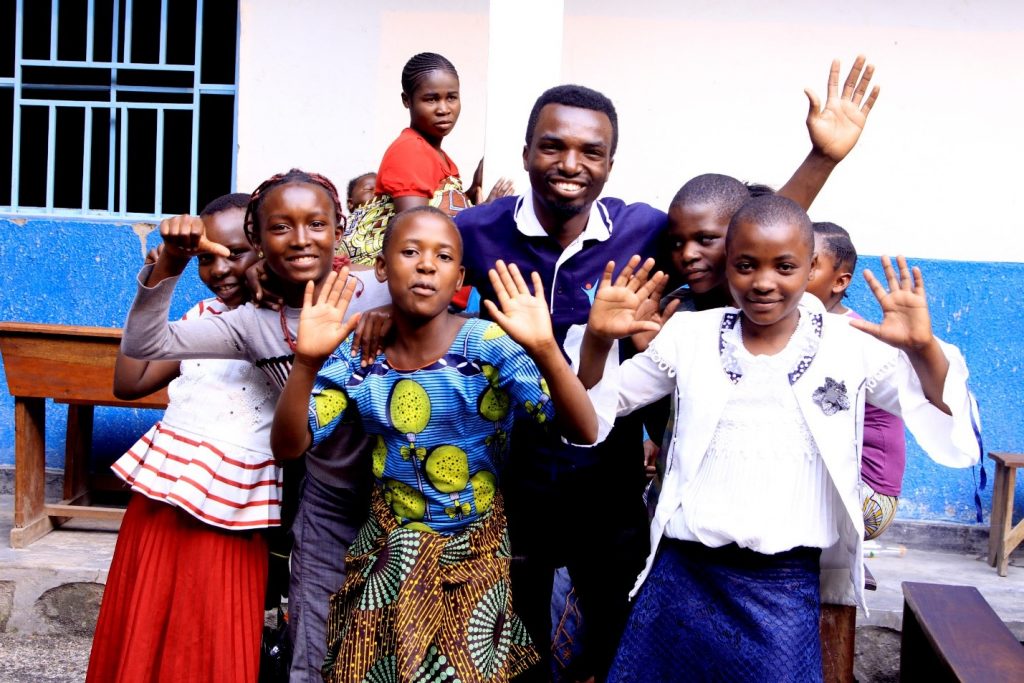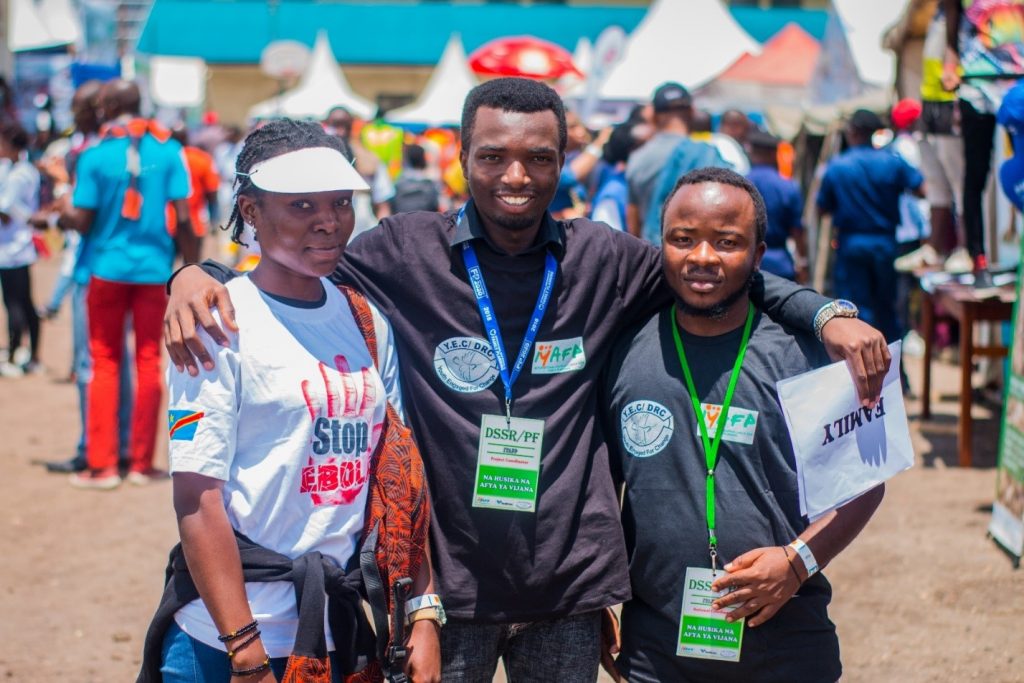
Binezero Mambo Simon is a medical practitioner graduate of Kampala International University and youth activist focused on sexual and reproductive health rights and family planning in the Democratic Republic of Congo (DRC). He is convinced that providing women and girls the means to stay in school and avoid early marriage, and guaranteeing them access to family planning and HIV prevention services is essential in improving their health and enable them to achieve their full potential. Simon is a Team Leader for Youth Alliance for Reproductive Health-Drc (YAHR-Drc) and a Volunteer at the Reproductive Health Uganda-Youth Action Movement (RHU-YAM).

What does #EqualEverywhere mean to you?
Equal everywhere means all humans are: free to develop their personal abilities at any place or anytime; able to make choices without the limitations set by stereotypes or gender roles; and are guaranteed fair and respectful treatment regardless of gender. It means equality of opportunity for children everywhere.
Why do you advocate for equal rights for girls and women?
My daily goal is to contribute to the well-being of girls and women so they can achieve their full potential. Giving them a strong foundation by pushing for gender equality is my way of helping to advance the Sustainable Development Goals. I want to live in a world where every girl and woman can exercise her right to privacy, gender identity, choosing partners, having children, and accessing sexual and reproductive health rights.
When girls and women become #EqualEverywhere, they will be able to complete school, find good jobs or create their own jobs, build healthy families, and contribute to economic growth and thereby to the development of their nations. A world where everyone has an equal say in decisions about their reproductive life and can pursue economic growth will mean a healthier, better-off planet.
What motivates you to do this work?
Girls living in rural and poorer areas of my country are at high risk of being married off in childhood, driven in part by the belief that girls are somehow inferior to boys. Many families still negotiate and practice bride price, which can contribute to perceptions that husbands ‘own’ girls, lowering their worth to that of a belonging or commodity. Child marriage is driven by gender inequality and the belief that girls are somehow inferior to boys. Young brides are less empowered to negotiate family planning and are at an increased risk of complications during pregnancy and childbirth. Girls under the age of 18 who marry are more likely to become infected with HIV and are more vulnerable to intimate partner violence. In my country, the education sector perpetuates gender inequality. Refusing to close my eyes to this injustice, I committed myself to working for equal rights for girls and women. For girls to overcome barriers, they must stay in school and acquire knowledge and skills so they feel empowered to speak up for their rights.
What are the main challenges you experience in your work to advance gender equality?
While policies have improved, translating them into practice is difficult. While laws against early marriage exist, enforcement remains weak and perpetrators are rarely prosecuted. The DRC has a burgeoning population, many of whom are adolescent girls missing out on the chance to go to school. For those of us in the youth activism eager to implement change and correct this inequity, funding and support are inadequate. Engagement without financial support is not enough — young people need access to funding to become equal partners in advancing gender equality.
What progress are you seeing in the wider gender equality movement?
We need to celebrate our progress and find ways in our workplaces, families, communities, and schools to push forward women’s rights and promote healthier ideals of manhood. While access to education has slowly improved, we still need to end the scourge of child marriage, which persists due to entrenched local customs. Thanks to our work, local communities are becoming aware of how harmful the practice is and more are determined to end it. There is no reason for women to trail behind men in social, economic, and political outcomes, but countries need to do much more if we are to be equal everywhere.

 BACK TO STORIES
BACK TO STORIES